Oct 02
Education for Liberation and Freedom Schooling
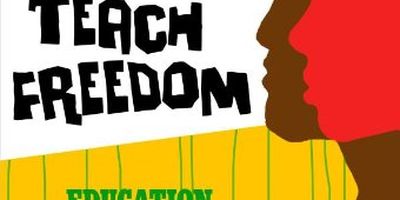
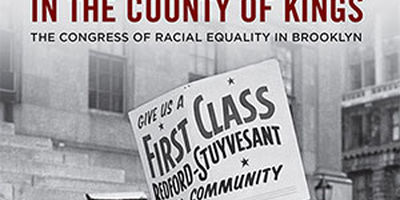
Description
School segregation, racial and gender exclusion and savage inequality are as old as the United States. As are people's efforts to challenge this. This month's roundtable focuses on Freedom Schooling: how people imagined and created education that befit a free Black people. These four scholars all give us portraits of the various strategies and visions for liberation that parents, students, and community activists have developed over the past sixty years to press for and develop equal, excellent, and emancipatory education, particularly in New York City. They show how parents and community activists took on school segregation, unequal resources, decrepit facilities, racially biased curriculum, the need for more diversity in faculty and administration, as well as the need for more community control in the administration of schools serving young people of color. Please join Professors Charles Payne, Brian Purnell, Ujju Aggarwal and Nicole Burrowes for this timely roundtable.
Speakers
-
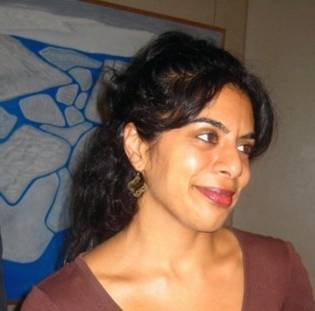
Ujju Aggarwal
The New School for Social Research
Ujju Aggarwal is an Assistant Professor of Anthropology and Experiential Learning at The New School. Her research engages public education, urban space, rights, and the state in relation to gendered political subjectivities, kinship, racial capitalism, social reproduction, and anti-carceral studies. Her first book, Unsettling Choice: Race, Rights, and the Partitioning of Public Education, a historically informed ethnography of choice as it emerged in the post-Civil Rights period in the United States, was published by the University of Minnesota Press. Her current project, Education Against Enclosure, is supported by the Spencer Foundation. Ujju also brings along history working to build organizing for educational justice, immigrants’ rights, and abolition as well as projects at the intersection of arts and social justice, popular education, and adult literacy. She serves on the Board of Teachers Unite, on the Advisory Boards of the Parent Leadership Project (Bloomingdale Family Head Start Center, PLP), PARCEO (Participatory Action-Research Center for Education, Organizing), and the The Public Scholarship Practice Space (CUNY Graduate Center). -
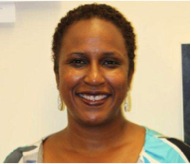
Nicole Burrowes
University of Virginia and CUNY Graduate Center
Nicole Burrowes is a fellow at the Carter G. Woodson Institute for African-American and African Studies at the University of Virginia (UVA) and a PhD candidate in history at the CUNY Graduate Center. During the summer of 2014, in commemoration of the 50th anniversary of the Mississippi Freedom Project, she co-taught a multimedia undergraduate course at UVA entitled “Freedom Summer” which included movement history, a service-learning component, a moving classroom and discussion on current issues facing black communities.She has a history of involvement with contemporary models of Freedom Schools: for ten years she worked with Sista II Sista Freedom School for Young Women of Color in Bushwick, Brooklyn, which she cofounded, and early in her career, she served as a field staff for the Children’s Defense Fund’s Freedom Schools initiative in Harlem. Her research interests include social and labor movements in the African Diaspora, intersectionality, Latin American and Caribbean history and the politics of solidarity. She recently co-authored an article for the Fall 2014 issue of Southern Quarterly entitled: “Freedom Summer and Its Legacies in the Classroom.”
-
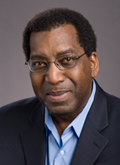
Charles Payne
Rutgers University - Newark
Charles M. Payne is the Henry Rutgers Distinguished Professor of African American Studies at Rutgers University Newark and the Director of the Joseph Cornwall Center for Metropolitan Research. His research and teaching interests include urban education and school reform, social inequality, social change and modern African American history, particularly the Black Freedom Struggle. His books include So Much Reform, So Little Change, which examines the persistence of failure in urban schools, and a co-edited anthology, Teach Freedom: The African American Tradition of Education For Liberation, which is concerned with education as a tool for liberation from Reconstruction through Children’s Defense Fund Freedom Schools. He is also the author of Getting What We Ask For: The Ambiguity of Success and Failure In Urban Education and I've Got the Light of Freedom: The Organizing Tradition in the Mississippi Civil Rights Movement. He is co-author of Debating the Civil Rights Movement and co-editor of Time Longer Than Rope: A Century of African American Activism, 1850 -1950.
Payne has been a member of the Board of the Chicago Algebra Project, of the Steering Committee for the Consortium on Chicago School Research, the Board of Directors of MDRC, the Research Advisory Committee for the Chicago Annenberg Project, and the advisory board for Teacher College Press’ series on social justice. He is a co-founder of the Duke Curriculum Project, which involved university faculty in the professional development of public school teachers and also co-founder of the John Hope Franklin Scholars, which tries to better prepare high school youngsters for college. He is among the founders of the Education for Liberation Network, which encourages the development of educational initiatives that encourage young people to think critically about social issues and understand their own capacity for addressing them. Payne was also founding director of the Urban Education Project in Orange, New Jersey, a nonprofit community center that tried to interest urban youngsters in technical careers. From 2009 to 2011, he served as the acting executive director of the Woodlawn Children’s Promise Community, an effort, modeled on the Harlem Children’s Zone, to dramatically improve youth outcomes in the Woodlawn neighborhood of Chicago.
-
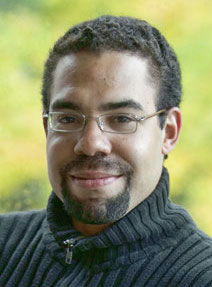
Brian Purnell
Bowdoin College
Brian Purnell is Assistant Professor of Africana Studies and History at Bowdoin College. He grew up in the Coney Island-Brighton Beach section of Brooklyn. He lived in New York City until 2010, when he moved to Brunswick, Maine. From 2004-2010, he taught at Fordham University and directed the Bronx African American History Project, a community-university partnership dedicated to finding and preserving the history of black people in the Bronx. He is the author of, Fighting Jim Crow in the County of Kings: The Congress of Racial Equality in Brooklyn, which won the Dixon Ryan Fox manuscript prize from the New York State Historical Association.
In addition to his scholarship, Brian Purnell served as a scholarly advisor to “Fighting for Justice: New York Voices of the Civil Rights Movement,” an oral history project led by the New York City Commission on Human Rights. He received his M.A. (2004) and Ph.D. (2006) in History at New York University and his B.A. (2000) in History and African American Studies from Fordham University. His edited collection, with Jeanne Theoharis and Komozi Woodard, The Strange Careers of Jim Crow North: Segregation and Struggle Outside of the South, will be out this spring.